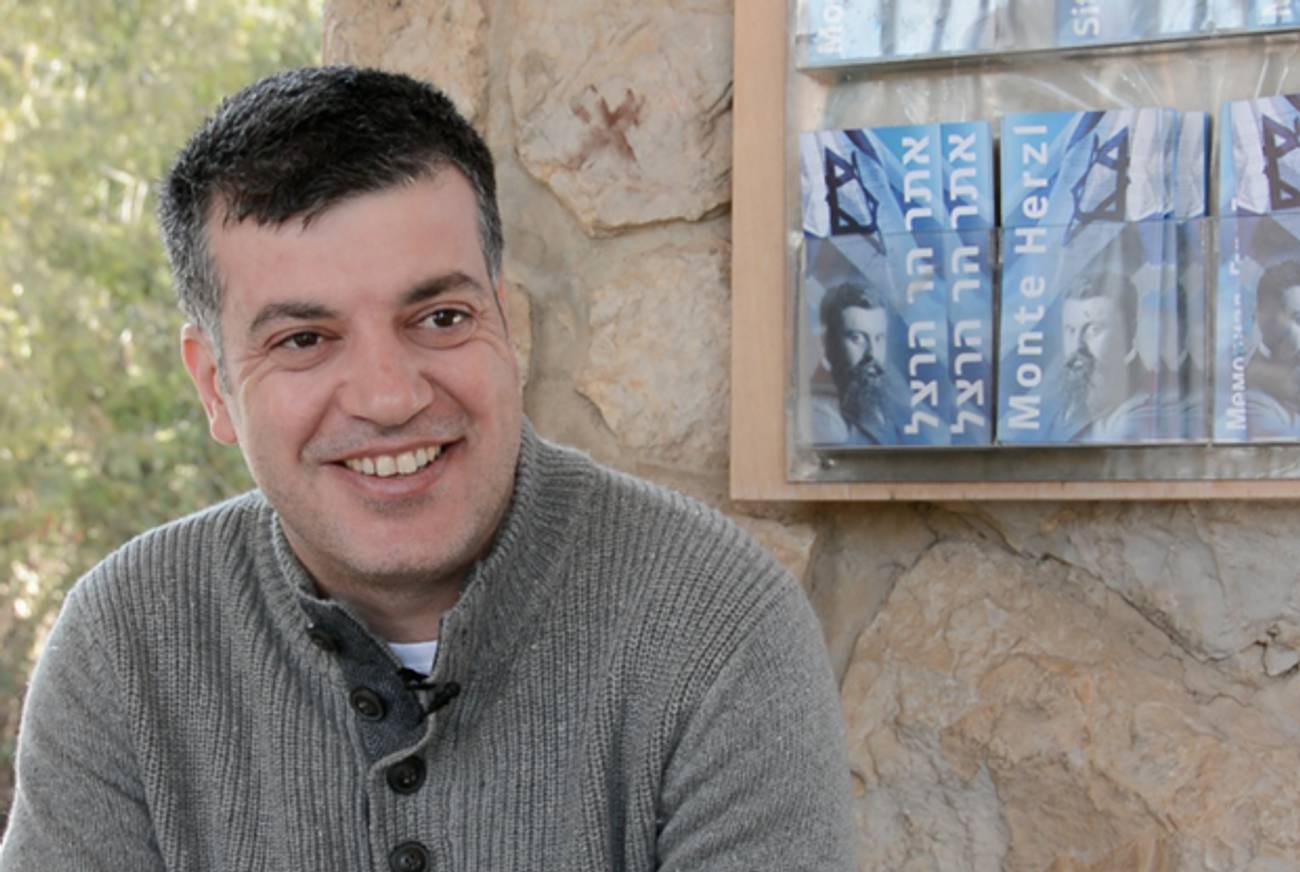An Idealist Says Goodbye to Israel
Israeli Arab writer Sayed Kashua is moving to Chicago with his family




Sayed Kashua has long represented the hope that some kind of co-existence in Israel can be achieved between historical antagonists. After all, he is an Israeli Arab who has lived in Jerusalem for 25 years and seems to have thrived there. A popular writer, he has a column in Haaretz, worked in television, and has three novels under his belt, all inspired by his experiences.
When he was 14, Kashua won a spot in a Jewish boarding school in Jerusalem and left his family and village behind. In the Guardian on July 19, he describes his initial encounters there with Hebrew literature. “I read Agnon, Meir Shalev, Amos Oz and I started to read about Zionism, about Judaism and the building of the homeland. During these years I also began to understand my own story,” he writes. “I began to write, believing that all I had to do to change things would be to write the other side, to tell the stories that I heard from my grandmother. To write how my grandfather was killed in the battle over Tira in 1948, how my grandmother lost all of our land, how she raised my father while she supported them as a fruit picker paid by the Jews.”
He had faith in his pursuit.
“I just have to be a good writer and I will free my people from the ghettos they live in, tell good stories in Hebrew and I will be safe … my children will have a better future. Thanks to my stories one day we will turn into equal citizens, almost like the Jews.”
If you have not yet read Kashua’s novels Dancing Arabs or Let It Be Morning, do—you are in for a treat. (I have not yet read his most recent, Second Person Singular.) The books are descriptive, poignant examinations of what it is to be an outsider who tries to pass in Israeli society—who, to some extent, has a desire to be a part of a community that he knows by and large diminishes him. There’s tragedy in that alone—in the willingness and work that goes into trying to be part of a community that rebuffs you in some measure. For the books to matter to a reader, though, that reader must be open to various suppositions—that Israel has injustices, that its society—like all societies—can be insular, and that Arabs are frequently discriminated against there (and not only there). If those are not realities you can tolerate, Kashua’s books might not be your thing.
In his Guardian essay, Kashua goes on to explain that he can no longer abide a second-class status whose immutability has become crystalline with the current Gaza incursion. The odious chants of “Death to the Arabs” in the streets have irreparably broken him. Those chants and the sentiments behind them should make us all ashamed. So, what was to be Kashua’s imminent departure for a year’s sabbatical in Chicago with his family will now become a permanent move. His writing, he realizes, will change nothing in Israel. The hate that exists will not give way in spite of his best efforts.
He believes now that his idealism, that his belief he could help broker peace (or at least co-existence) through art, has been for naught. We will all be far poorer for his absence.
Related: Arab Israelis, Undivided
Sara Ivry is the host of Vox Tablet, Tablet Magazine’s weekly podcast. Follow her on Twitter@saraivry.